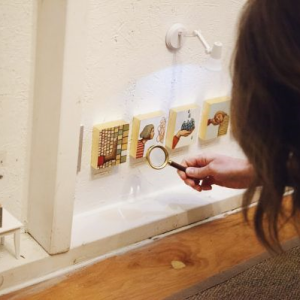Living in the here and now is a lot easier when things are going well. But, as journalist Clementine van Wijngaarden finds, it is during the rough times that mindfulness can be most beneficial. She shares two of her insights.
- Stop wanting things to be different from what they actually are
In the first mindfulness session I lay down on my mat for the body scan. I tried to relax but I couldn’t, and my body felt stiff as a plank. Afterward I heard others complain they had fallen asleep, and I was envious. To fall asleep, to surrender to the mat I was lying on—that’s what I wanted. “Wanting things to be different than they are, wishing for something that isn’t there, is a thought we get stuck in,” says mindfulness expert Mila De Koning. “Your challenge is to relate to the here and now.””When you look at it properly, you are suffering more from your desire to relax than from your lack of relaxation. You’re feeling resistance to the situation as it is. As Jon Kabat Zinn once said, ‘You have pain, mentally or physically, which is unpleasant, but resisting this pain, that’s suffering.’ He even put it into an equation: Pain x Resistance = Suffering. In mindfulness the point is to be present with what is here, how things are at this moment in the here and now, and to be kind toward it.”
- Don’t run away from a problem – run towards it
After all the running around I had done in the months before the course, this insight, together with insight number three, is the most significant to me. The trainer made it very tangible by handing around Chinese finger traps during one of our sessions. This cylinder, woven from bamboo—a puzzle really— beautifully captures the essence of how we often deal with problems: You want to avoid it so you move away from it, even though the solution to it is to move in closer. No one in the class had ever seen this puzzle before, and as we stuck our index fingers into the two ends, a collective panic broke out. We were stuck and we wanted to get out.One of us, a guy, had such a strong reaction that he pulled the object apart in one abrupt movement. That was quite an achievement, as bamboo is such a strong material you could practically build an airplane from it. “Here is another instance where what you need to do is recognize the problem,” De Koning says. “Approach it, accept it and befriend it, then it will become more manageable.”
*More insights can be found in Issue 18.
Text Clementine van Wijngaarden Photography ©Dabir Bernard/Unsplash













